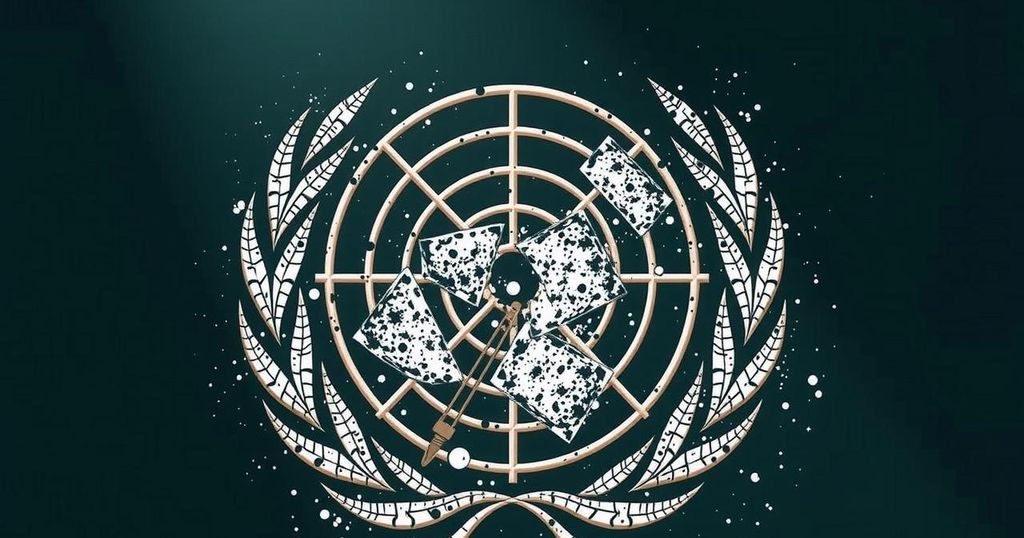On November 18, 2024, Russia vetoed a UN resolution calling for an immediate cessation of hostilities in Sudan, which has been embroiled in conflict since April 2023. The resolution aimed at initiating peace talks between rival factions led by General Abdel Fattah Al Burhan and General Mohamed Hamdan Daglo. British Foreign Secretary David Lammy criticized Russia’s action as a significant impediment to international consensus on this humanitarian emergency.
On November 18, 2024, Russia exercised its veto power at the United Nations Security Council, blocking a proposed resolution urging an immediate ceasefire in Sudan. The resolution, co-authored by Britain and Sierra Leone, aimed to halt hostilities that have escalated since April 2023 between the regular army, led by General Abdel Fattah Al Burhan, and the Rapid Support Forces (RSF), headed by General Mohamed Hamdan Daglo. The British Foreign Secretary, David Lammy, condemned Russia’s refusal, labeling it a “disgrace” and accusing it of obstructing a unified international response to the crisis.
This decision further reflects the growing polarization among permanent UN Security Council members, particularly highlighted by recent tensions surrounding the conflict in Ukraine. The situation in Sudan has led to tremendous humanitarian challenges, with the conflict resulting in tens of thousands of deaths and millions displaced. The UN’s inability to facilitate a resolution underscores the complexities involved in addressing contemporary global crises, heavily influenced by geopolitical dynamics.
The ongoing conflict in Sudan represents a severe humanitarian crisis warranting urgent international intervention. Since April 2023, fighting between General Abdel Fattah Al Burhan’s army and the RSF has intensified, resulting in catastrophic human suffering. Displacement figures indicate that over 11 million individuals have been forced from their homes, with many fleeing the country altogether. The broader international implications of the conflict are exacerbated by geopolitical divides among permanent members of the UN Security Council, as evidenced by Russia’s veto, which has paralyzed meaningful resolutions related to the crisis.
In summary, Russia’s veto of the UN Security Council resolution for a ceasefire in Sudan has highlighted significant geopolitical divides within the council and reflects a deterioration of cooperative efforts to address humanitarian crises. The ongoing conflict has severely impacted the civilian population, emphasizing the urgent need for a cohesive international response to mitigate further suffering and promote stability in Sudan. The ramifications of such decisions underscore the complexities of international diplomacy in the face of sovereign conflicts.
Original Source: jordantimes.com






